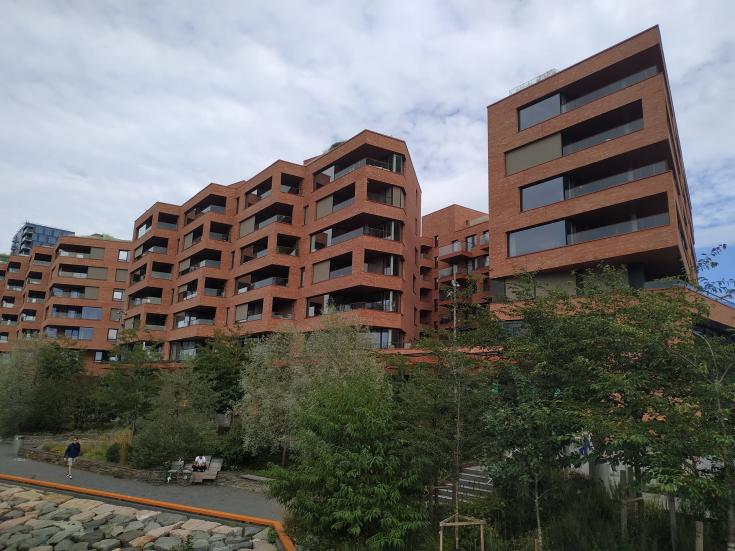Supporting reuse of boilers in private housing

European member states are obliged to implement the common climate protection goals and make the building sector climate-neutral. The countries have made different progress in switching to heating with renewable energies.
When a heating change is planned, there is not enough time to consult an energy advisor and select a new heating technology, ask for subsidies, find a supplier and installer and carry out the works. In the current economic environment, this process takes more than 12 months for a multi-apartment house.
When the old heating breaks down unexpectedly and a new solution must be placed to ensure continuous thermal comfort, the only practically feasible fast solution is to install another gas boiler.
However, the household should not remain locked into the gas technology for the lifetime of the gas boiler, and therefore such gas-to-gas replacements should be only interim solutions while the new, lower-carbon heating solution is being planned.
To overcome this challenge, the Province of East Flanders requested an online matchmaking with the Interreg Europe Policy Learning Platform. Explore the outcome and recommendations below.
Pros and cons of second hand gas boilers as interim solution
Explore the pros and cons discussed during the online matchmaking session below.
| Pros | Cons |
|---|---|
Pros
|
Cons
|
Only 5-7 years old condensing boilers should be targeted for second-hand use. They fulfill the requirements of having a CE mark, of having still guaranteed spare parts and of being state-of-the-art.
Target population
Usually, second-hand boiler placements are targeted to low-income households without resources to afford a new system. They are also meant for households being located in areas designated for new district heating projects, to keep them available to connect to a new DH system.
Finally, such boilers can be allocated to households confronted with an unexpected heating breakdown willing to invest in renewable heating but facing longer planning and waiting times.
Stakeholder involvement and circular initiatives
The exchange among participants brought to the conclusion that there are no mature experiences with second-hand gas boilers in the EU yet. For sure, public authorities can’t find and develop solutions in isolation.
A consultation with the relevant stakeholders initiated by the public bodies could lead to working technical and economic models for the reuse of boilers or even lease/rental models. Key stakeholders are manufacturers and installers.
Secondary stakeholders are social housing associations, representatives of homeowners, and insurance companies. Circular economy initiatives (reuse, repair) could serve as a forum to discuss the second-hand boiler challenge, and they should be encouraged.
Participants of the online matchmaking
- Sam De Coster, Policy officer sustainable living and energy, Centre for Sustainable Living and Construction - Climate, Environment and Nature Department, Province of East Flanders, Belgium
- Simon Verpoest, Province of East Flanders, Belgium
- Luna Lannoo, Province of East Flanders, Belgium
- Benjamin Wilkin, Executive Director, Energie Commune, Brussels Capital Region, Belgium
- Michael Canny, Housing Directorate, Cork City Council, Ireland
- Ine Lobelle, Project leader energy districts, City of Roeselare, Belgium (LEEWAY)
- Thomas Hirschberger, Expert Climate Protection and Sustainability, City of Pfaffenhofen a. d. Ilm, Germany
- Katharina Krell, Thematic Expert Low Carbon Economy
- Elena Ferrario, Thematic Manager
